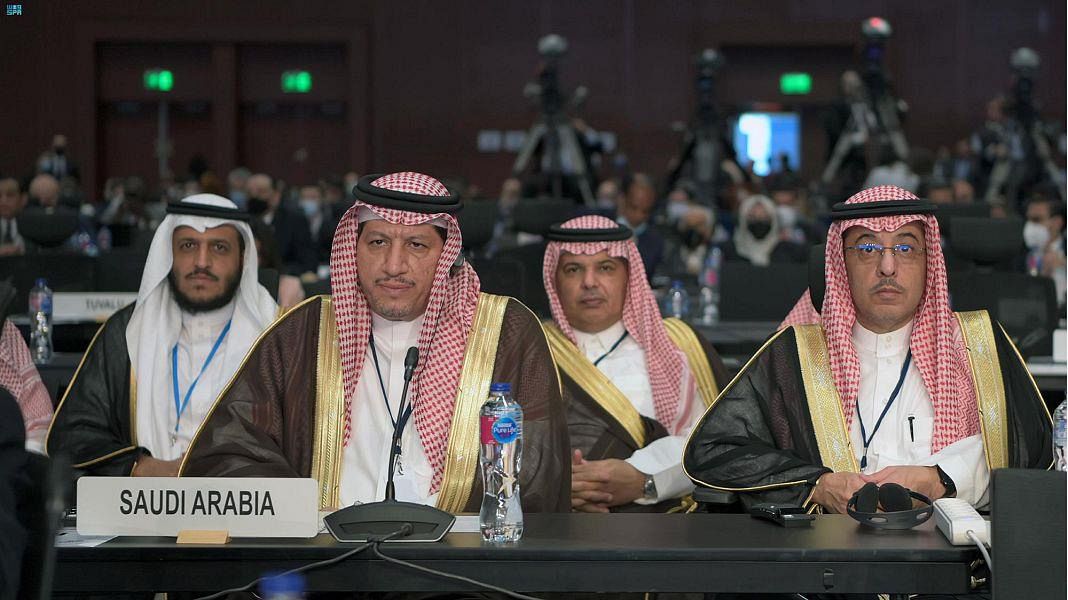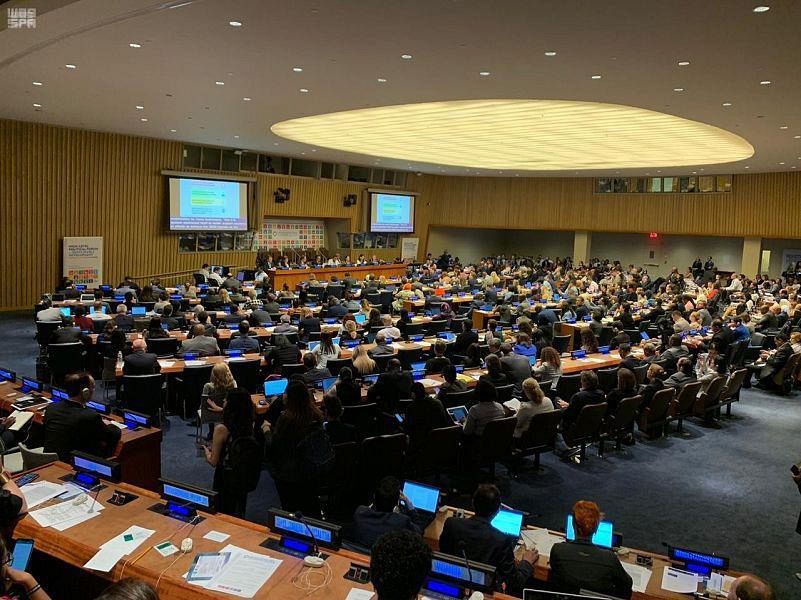
Saudi Arabia has on Tuesday opened the doors to its pavilion on the sidelines of the UN World Ocean Conference under the banner ‘Blue Saudi’.
Saudi Arabia is prioritizing the health of the Red Sea and is playing a leading role in researching its unique and often thriving habitats and ecosystems, to better understand and contribute to protection and regeneration efforts and translating such knowledge into positive action.
Saudi Arabia has previously announced several key commitments as part of broader ambitions to drive sustainability in the Kingdom, including increasing the percentage of marine protected areas to 30 percent, and planting 100 million mangroves by 2030.
These goals are well aligned to Vision 2030, the country’s unique transformative economic and social reform blueprint.
The strategy was designed to harness and showcase the nation’s greatest strengths, build upon its leading role at the heart of Arab and Islamic worlds, and help to create a more sustainable economy by forging new and stronger cultural business connections with the world.
The ocean covers 70 percent of the Earth’s surface, is the planet"s largest biosphere, and is home to up to 80 percent of all life in the world. It nurtures unimaginable biodiversity and produces food, jobs, mineral, and energy resources needed for life on the planet to survive and thrive.
There is a great deal we still do not know about the ocean but there are many reasons why we need to manage it sustainably — as set out in the targets of Sustainable Development Goal 14: Life Below Water.
The Red Sea is the world’s warmest and saltiest ocean, providing a home to extensive coral reef banks and a narrow, deep central axis as large in area as the Great Barrier Reef.
Saudi Arabia is laser focused on researching these unique habitats to better understand their tolerance to more challenging conditions and the subsequent development of technologies to help expand coral habitats, enabling biodiversity to flourish.
The second summit of its kind, the 2022 UN Ocean Conference — co-organized by the governments of Portugal and Kenya — aims to inspire a global effort to rebuild marine life, emphasizing the critical role that the ocean plays in stabilizing climate systems.
This year’s event is being hosted in Lisbon from June 27 to July 1, under the theme this year is: Scaling up Ocean Action Based on Science and Innovation for the Implementation of Goal 14: Stocktaking, Partnerships and Solutions.
“Our presence at this globally significant conference demonstrates our commitment to not only taking part in the conversation but sharing the lessons learned about our coastline and oceans.
“Moreover, the goal is to play a connecting role, bringing together countries who border these waters, to ensure a comprehensive approach to protecting the Red Sea is developed and successfully delivered,” explained Dr. Mohammad Qurban, head of Saudi delegation to UN Ocean Conference and CEO, National Center of Wildlife.
“Ultimately, the Kingdom hopes to export the scientific learnings discovered and the positive application of innovative solutions, with the rest of the world, as we all unite together to confront some of the biggest challenges facing people and planet today,” he concluded.
On the evening of Tuesday, Blue Saudi will host an event to facilitate conversation around the role of science and innovation in enabling regenerative development of the Red Sea, and how meaningful partnerships and collaboration, coupled with good governance, are driving positive action in the marine environment. — SPA








